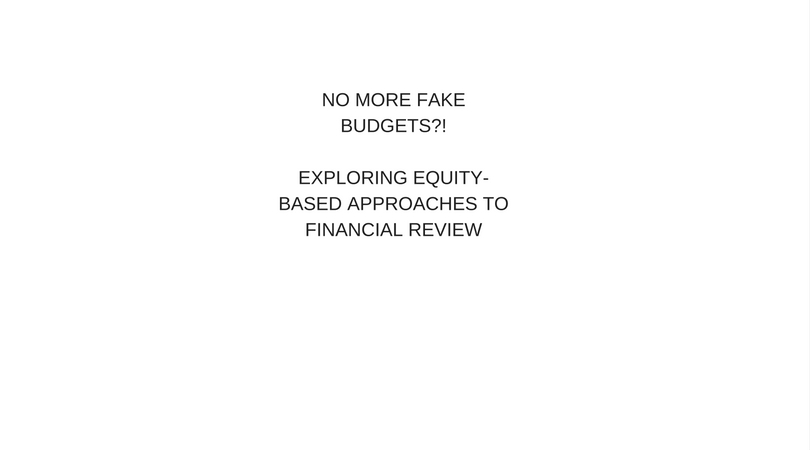By Iris Garcia, Grants Manager at Akonadi Foundation
Since 2000, Akonadi Foundation has been working to support and nurture racial justice movement building through our core grantmaking programs, the Arc Toward Justice Fund and the Beloved Community Fund. Over the past 17 years, we have been seeking out ways to align our internal systems and practices with our racial justice values. Through Akonadi’s involvement with Bay Area Justice Funders Network, we met Carol Cantwell, the founder of Fun with Financials, who introduced a new tool for approaching financial due diligence: Financial Health Indicators (FHI). The FHI pulls three years of financial data directly from an organization’s IRS Form 990 and provides an overview of financial trends. In 2014 we adopted this tool for our Arc Towards Justice Fund, which provides general support funding to racial justice organizations in Oakland, to help us be in conversation with our grantees about their financial goals and reduce grantee burden in the grantmaking process. For the past three years we have not requested budgets from our grantee cohort. Rather, we have analyzed their financial data from 990s that we download directly from Guidestar and have used this analysis to engage in conversation with our partners about their financial position. This transition has embodied our values in a few ways:
- We try not to overburden our partners with requests for data or content, and by eliminating the need for a budget, we hope that groups can spend that time in community, strategizing, or movement-building
- By using and sharing the FHI tool with our grantee partners, we are ensuring a level of transparency, so that our partners know exactly what we are seeing when we review their financial records. This transparency can help address the power imbalance between grantor and grantseeker, and we have tried to use this analysis as a starting point for conversations about building financial sustainability in the long-term.
- As part of our application process, we host a webinar about Financial Health Indicators for applicants, and these organizations have been able to ask questions directly to Carol Cantwell. We see this step as building capacity of organizations to look at their finances in a different way and ask themselves questions that go beyond a balanced budget.
We have found that this experiment has challenged us to think more deeply about the financial due diligence process, why we request financial data and what our role is in supporting the financial stability of the racial justice movement in Oakland. If any other funders are interested in exploring equity-based approaches to financial due diligence, we would be happy to connect and share our experience. For another institution’s perspective on using the FHI tool, please read this article by the Unitarian Universalist Veatch Program: In Other Words, Funder Budgets are Fake.
